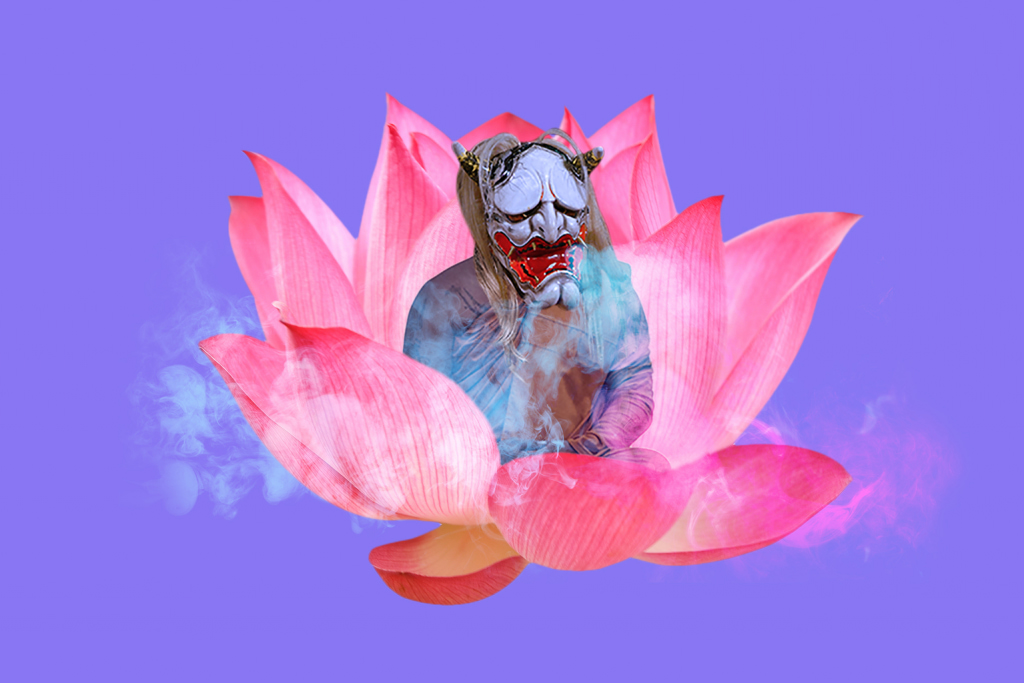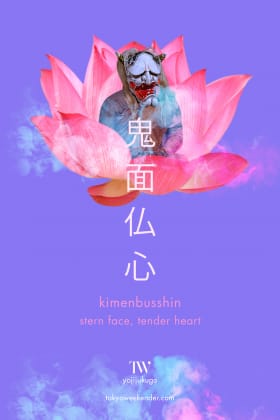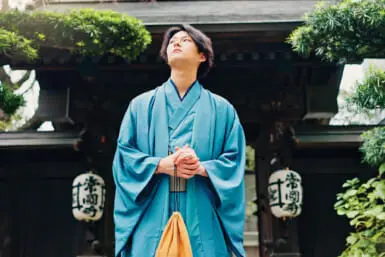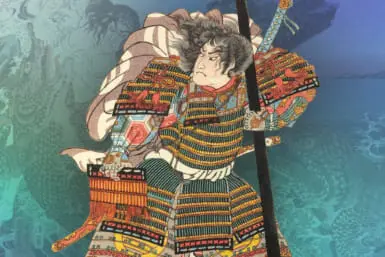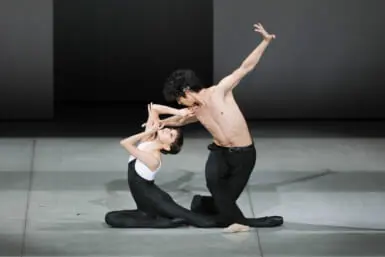Many of us ousted ogres from our apartment during Setsubun to ensure good luck for the new season. But how do we know these demon-faced entities are evil spirits? What if — as in Oita’s Kunisaki Peninsula — some ogres are actually gentle sweethearts? For all we know, it could be a case of kimenbusshin: Having the face of a devil and the heart of Buddha.
Kimenbusshin (鬼面仏心)
Meaning: Having the face of a devil and the heart of Buddha, having a stern face but a tender heart.
Literal translation and kanji breakdown: Kimenbusshin breaks down nicely: Kimen (鬼面) depicts an ogre’s face, meaning someone with a startling appearance. Busshin (仏心) symbolizes Buddha’s heart. Together they make up a literal representation of someone with the face of a demon but the heart of a Buddha.
Kimenbusshin: The Origins
While it’s a superficial measure, “ugly” ogres have long been an abstract symbol of the terrifying unknown in Japanese myths and legends. In short, they represent evil. Conversely, Buddha is the ultimate symbol of benevolence and compassion. It’s a contrast of extremes.
Kimenbusshin: Related Expressions
人面獣心 Jinmenjushin A beast in human form, someone who looks calm on the surface but is secretly cruel (The opposite of kimenbusshin)
雪と墨 Yuki to sumi Diametric opposites, night and day, black and white, snow and ink
表裏一体 Hyouri-ittai Two different views referring to the same thing, two sides of the same coin
顔と心は裏表 Kao to kokoro wa uraomote Their face and heart are reversed
Using “kimenbusshin” in a sentence
While kimenbusshin isn’t used widely in everyday conversations, it’s well known and does come up on occasion.
あの先生は普段怖いけど、実は鬼面仏心で生徒思いの先生だ。Ano sensei wa fudan kowai kedo, jitsu ha kimenbusshin de seito omoi no sensei da. That teacher is pretty scary, but his stern face hides a heart of gold — he cares a lot about his students.
ヤクザ映画などは鬼面仏心な主人公というパターンが多いですね。Yakuza eiga nado wa kimenbusshinna shujinkou to iu pata-n ga ooii desu ne. Yakuza movies often feature a scar-faced protagonist with a warm heart.
Want more? Follow our weekly Yojijukugo Japanese Idiom series, published every Friday. Learn the meaning of “fuufu-enman” here, “shinki-itten” here and “happoubijin” here.

